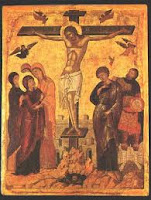A psalm of David, when he changed his behaviour before Abimelech: who drove him away, and he departed.
1I will bless the LORD at all times: his praise shall continually be in my mouth. 2My soul shall make her boast in the LORD: the humble shall hear thereof, and be glad.
3O magnify the LORD with me, and let us exalt his name together.
4I sought the LORD, and he heard me, and delivered me from all my fears.
5They looked unto him, and were lightened: and their faces were not ashamed.
6This poor man cried, and the LORD heard him, and saved him out of all his troubles.
7The angel of the LORD encampeth round about them that fear him, and delivereth them.
8O taste and see that the LORD is good: blessed is the man that trusteth in him.
9O fear the LORD, ye his saints: for there is no want to them that fear him.
10The young lions do lack, and suffer hunger: but they that seek the LORD shall not want any good thing.
11Come, ye children, hearken unto me: I will teach you the fear of the LORD.
12What man is he that desireth life, and loveth many days, that he may see good?
13Keep thy tongue from evil, and thy lips from speaking guile.
14Depart from evil, and do good; seek peace, and pursue it.
15The eyes of the LORD are upon the righteous, and his ears are open unto their cry.
16The face of the LORD is against them that do evil, to cut off the remembrance of them from the earth.
17The righteous cry, and the LORD heareth, and delivereth them out of all their troubles.
18The LORD is nigh unto them that are of a broken heart; and saveth such as be of a contrite spirit.
19Many are the afflictions of the righteous: but the LORD delivereth him out of them all.
20He keepeth all his bones: not one of them is broken.
21Evil shall slay the wicked: and they that hate the righteous shall be desolate.
22The LORD redeemeth the soul of his servants: and none of them that trust in him shall be desolate.
JW:
David praises God for his goodness to himself and others, ver. 1 - 7; encourages the righteous to trust in him, ver. 8 - 10; exhorts them to fear God and depart from evil, ver. 11 - 14; God's favour to the righteous and displeasure at the wicked, ver. 15 - 22. Title of the psalm. When - A psalm made upon that occasion, though not at that time, when he counterfeited madness. Wherein whether he sinned or not, is matter of dispute; but this is undoubted, that his deliverance deserved this solemn acknowledgment. Abimelech - Called Achish, 1Sam 21:10. But Abimelech seems to have been the common name of the kings of the Philistines, Gen 20:2 26:1, as Pharaoh was of the Egyptians.
3: 'Together' - Not in place, for David was no banished from the place of God's public worship, but in affection; let our souls meet, and let our praises meet in the ears of the all-hearing God.
5: 'Lightened' - Comforted and encouraged. 'Ashamed' - They were not disappointed of their hope.
8: 'O taste' - Make trial, of it by your own experience of it. 'Good' - Merciful and gracious.
9: 'Fear' - Reverence, serve, and trust him; for fear is commonly put for all the parts of God's worship.
14: 'Depart' - From all sin. 'Do good' - Be ready to perform all good offices to all men. 'Seek' - Study by all means possible to live peaceable with all men. 'Pursue it' - Do not only embrace it gladly when it is offered, but follow hard after it when it seems to flee away from thee.
16: 'The face' - His anger, which discovers itself in the face.
18: 'Nigh' - Ready to hear and succour them. 'To' - Those whose spirits are truly humbled under the hand of God, and the sense of their sins, whose hearts are subdued, and made obedient to God's will and submissive to his providence.
What a majestic psalm for the age and season of the resurrection! It is a psalm of hope for it looks to God's deliverance from affliction and trouble (which really came
through affliction and trouble: think crucifixion/death) for those who put their trust in him and gives us hope for the future.
They were not disappointed of their hope.The command is to 'Depart!!' from evil, from all sin. This is why I came to
verse 4 of 'And Can It Be?' when I thought of the resurrection and its sin-breaking, death-breaking power for us today and tomorrow! From the dark dungeon of death, God's face, God's
eye diffused a quickening ray of light that bids 'Come awake!' and 'The grave no longer has a hold on you!' Jesus spoke of another 'Depart!' in the final judgment, but if we hear the 'Depart!' of this psalm, then we are in good company and we have hope.
My chains fell off! My heart was free! I rose, went forth, and followed Thee!But to what do we depart? That's why this psalm is so beautiful for it captures not only that
from which we are saved but also that
to which we are saved & sent: exalting, seeking, trusting and worshiping God! Doing good, seeking peace and pursuing it! It is, in short, what verse 12 describes as
desiring life! From death to life! Praise be unto Father, Son, and Holy Spirit, for
'the Spirit of him that raised up Jesus from the dead dwells in you.'
















